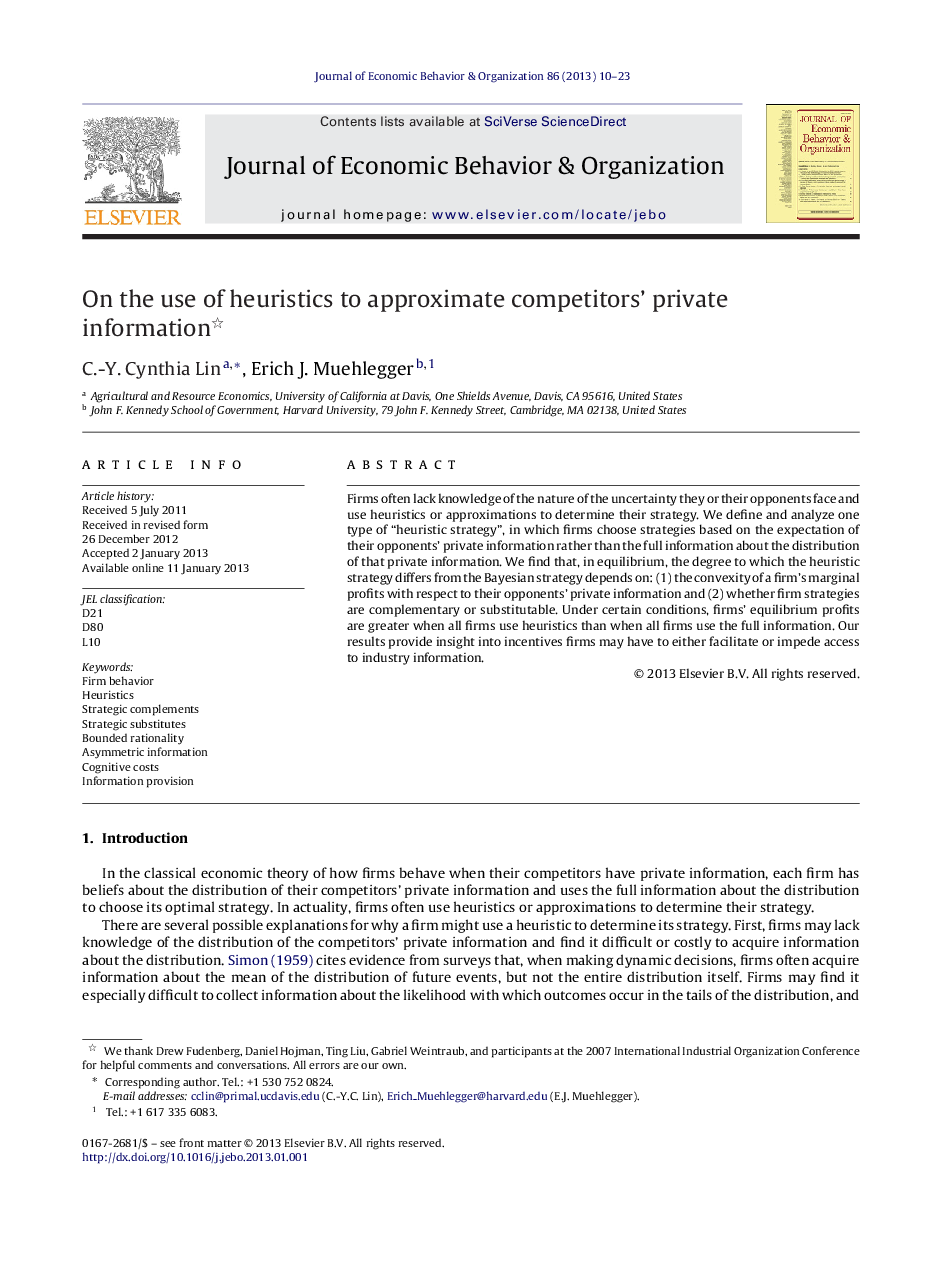| Article ID | Journal | Published Year | Pages | File Type |
|---|---|---|---|---|
| 883657 | Journal of Economic Behavior & Organization | 2013 | 14 Pages |
Firms often lack knowledge of the nature of the uncertainty they or their opponents face and use heuristics or approximations to determine their strategy. We define and analyze one type of “heuristic strategy”, in which firms choose strategies based on the expectation of their opponents’ private information rather than the full information about the distribution of that private information. We find that, in equilibrium, the degree to which the heuristic strategy differs from the Bayesian strategy depends on: (1) the convexity of a firm's marginal profits with respect to their opponents’ private information and (2) whether firm strategies are complementary or substitutable. Under certain conditions, firms’ equilibrium profits are greater when all firms use heuristics than when all firms use the full information. Our results provide insight into incentives firms may have to either facilitate or impede access to industry information.
► We define and analyze one type of “heuristic strategy”. ► Firms’ equilibrium profits can be greater when all firms use heuristics. ► Firms may have incentives to facilitate or impede access to industry information.
